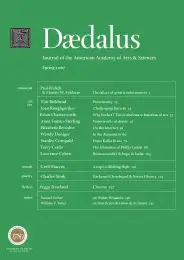Frameworks of desire
Genes versus choice. A quick and dirty search of newspaper stories covering scientific research on homosexuality shows that the popular press has settled on this analytic framework to explain homosexuality: either genes cause homosexuality, or homosexuals choose their lifestyle.1
The mischief that follows such a formulation is broad-based and more than a little pernicious. Religious fundamentalists and gay activists alike use the genes-choice opposition to argue their case either for or against full citizenship for homosexuals. Biological research now arbitrates civil legal proceedings, and the idea that moral status depends on the state of our genes overrides the historical and well-argued view that we are “endowed by [our] Creator with certain unalienable Rights . . . . ” Moreover, rather than framing research projects in terms of the whole of human desire, we neglect to examine one form, heterosexuality, in favor of uncovering the causes of the ‘deviant’ other, homosexuality.
Intellectually, this is just the tip of the iceberg. When we invoke formulae such as oppositional rather than developmental, innate versus learned, genetic versus chosen, early-onset versus adolescent experience, a gay gene versus a straight gene, hardwired versus flexible, nature versus nurture, normal versus deviant, the subtleties of human behavior disappear.
Linear though it is, even Kinsey’s scale has six gradations of sexual expression; and Kinsey understood the importance of the life cycle as a proper framework for analyzing human desire. Academics –be they biologists, social scientists,2 or cultural theorists–have become locked into an oppositional framework. As a result, they are asking the wrong questions and offering intellectually impoverished accounts of the emergence and development of human desire.
. . .
